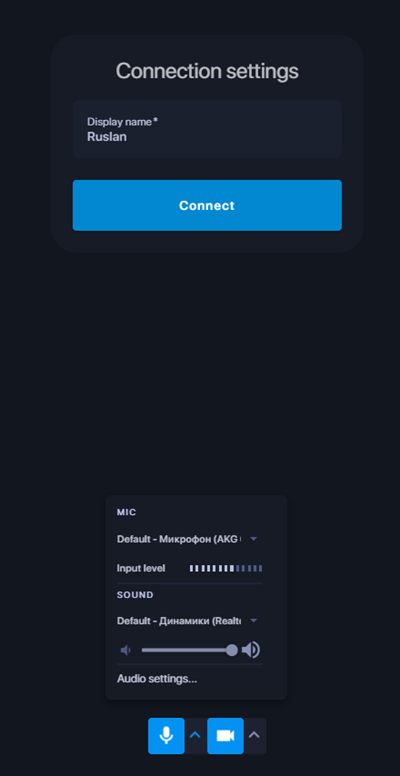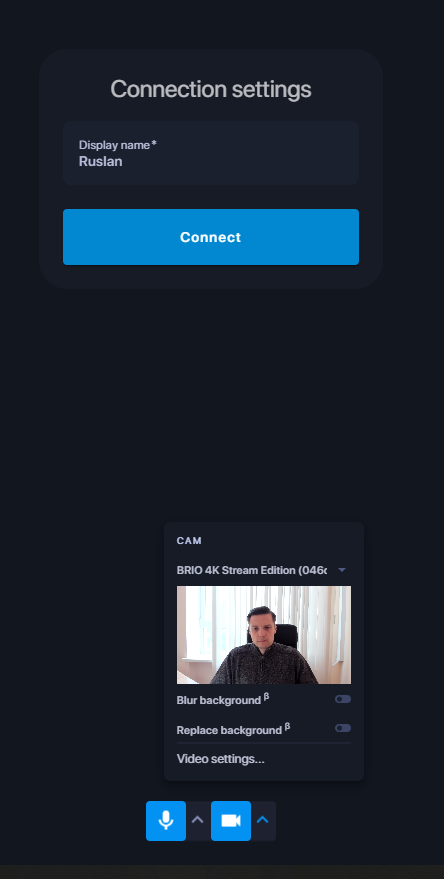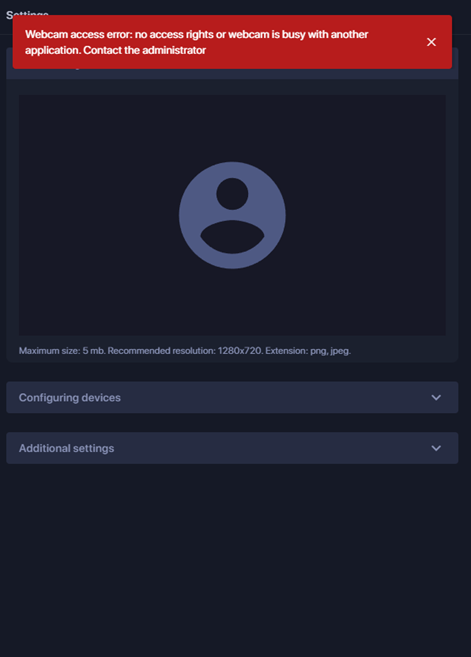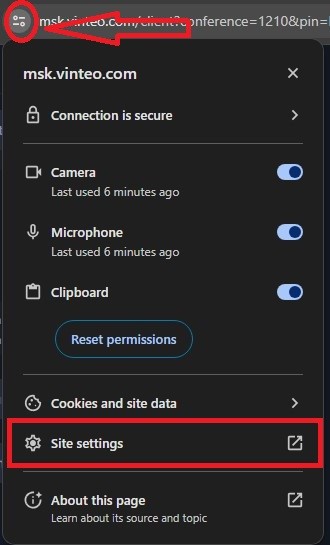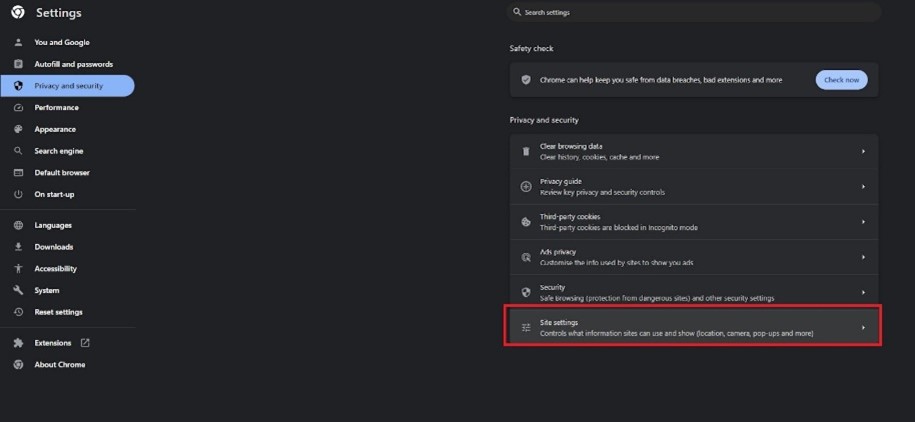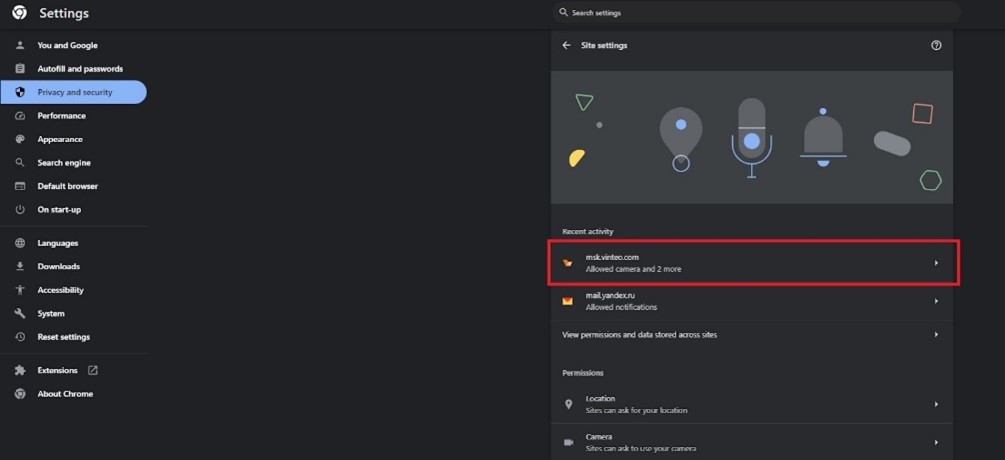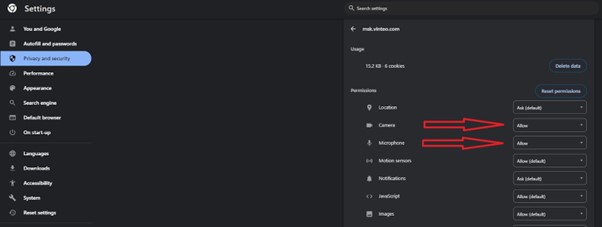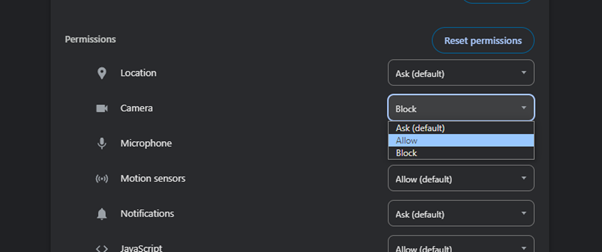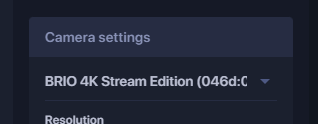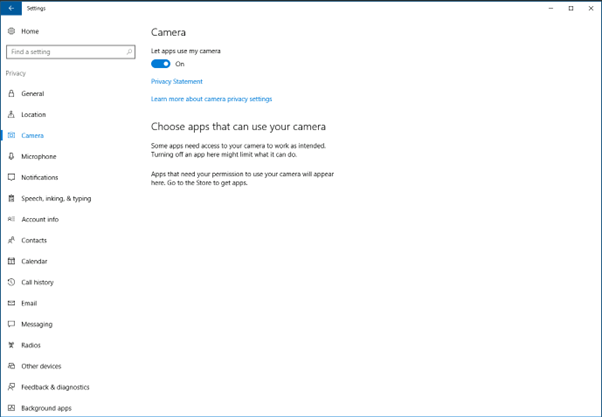Web Client. Quick Start
Содержание
Vinteo web client settings
After clicking on the link from the e-mail invitation to the video conference, a dialog box will appear in the browser suggesting either to open the link with the "Vinteo Desktop" application or to continue working in the browser. It is necessary to click the "Launch in browser" button.
Once the web client is launched, it needs to be configured by specifying a name and selecting a microphone and camera if necessary.
In the camera settings, there is also functionality to blur the background, replace the background with an image, and other settings.
Further numbers in the figure correspond to the points of the algorithm:
- when you follow the link from the invitation, the conference number will already be entered;
- enter the name/alias that will be displayed in the watermark in the conference; execute the call. If you have credentials to perform authorization, go to the next step;
- select the Authorization option, as shown in the figure;
- enter the subscriber number or login (if using LDAP authentication);
- enter the password. On successful authorization, the Call button will change color from gray to blue;
- this block of settings depends on the user's needs;
- device settings will allow you to configure capture and playback devices, upload an image as an avatar that will be displayed in the conference instead of the video stream when the camera is off.
Click the "Dial" button.
Solutions to problems with both the web client and the software client are described below, in the section "Errors that occur and their solutions". A detailed description of how to work in the Vinteo Web Client can be found in the following link.
Occurring errors and their solutions
When working with the web client, various situations may arise that hinder normal operation, some of them the client can solve by himself, which he will inform you about, but there are errors that require your participation, which he will also inform you about. Below are some examples of situations and their solutions.
Situation 1
There is no webcam and microphone in the system
Web client response behavior
The web client will take you to the "Device Setup" tab at startup, set the "No Camera" and "No Microphone" operating modes by itself and display a message about the problem: "There are no cameras or microphones available or there are no permissions in the browser to work with devices".
You have several options for further work, but before that, you need to manually grant permissions to the web client to access the camera and/or microphone in the browser, as this is a prerequisite for its operation. There are two ways to get to the permissions setting page for a given site address: the short route and the long route, but it is useful if the page is already closed.
Short route
Without leaving the web client page or on the server's home page you should click on the image of a lock (if the server has valid certificates) or on the image with a warning about the insecurity of the site and select "Site Settings".
Long route
Path: "Settings" - "Privacy and security" - "Site Settings" - "View current permissions and saved data" and click on the entry with the server address.
Both of the above routes take you to the security settings page for this site, where you must grant permissions for the microphone and/or camera and close the settings page. You must then reload the server or client home page or refresh to apply the rules.
The following are options for what to do when your browser has given you permission to use the microphone and/or camera:
- close the warning and continue without webcam and microphone, the other participants in the conference will only see a stub image from you, similar to the one selected as your avatar; you can hear what is happening in the conference and stream the presentation content if required.
- close the alert and select your desktop as the video source, it will be sent to the conference in the main video stream and also work with presentations.
- close the alert and set your avatar to be displayed instead of the default stub when there is no video from you in case the video source is missing or intentionally disconnected. The ability to select your desktop as the video source and broadcast presentations is preserved.
- close the browser and install the Vinteo Desktop (VD) application. For VD it is not necessary to give permission in the browser for access, it is enough to enter the server address in the "Connection address" field, if there is an account - go through authorization. In the dialing line, enter the conference number, if you have a PIN, enter it through the lattice sign 1000#1234 and make a call.
- ask to enable conference broadcasting for you and send a link to it, there will be no problems with microphone and camera.
Situation 2
The microphone and/or camera are present on the system, but the browser has been prevented from using the microphone and camera on first startup (Chrome)
Web client response behavior
The web client at startup will take you to the "Device Setup" tab, set the "No Camera" and "No Microphone" modes on its own and display a problem message: "No cameras or microphones available or no permissions in the browser to work with devices", this message is the same as when there is no camera or microphone.
There is one way to solve this problem:
Give microphone and/or camera permission for this site in your browser settings. To do this, click on the images of the lock or warning message to open the quick security settings and give permission to either of the two devices.
Situation 3
A webcam has been assigned, but it is currently occupied by another application
Responsive behavior of the web client and VD when there is only one webcam available The web client will take you to the "Device Setup" tab on startup, set the "No Camera" operating modes by itself, and display a message about the problem.
There are two options for further work:
- close the warning and continue working without the camera;
- close the warning, minimize the browser window or VD to the taskbar (VD can be left open, it will return the camera and microphone by itself), find and close the application that uses the camera and open the browser again. The selected camera will be restored and you can continue working.
Web client response behavior when multiple sources are present
In the example, the "HD Webcam" is assigned as the source (first source), the "BRIO 4K Stream Edition" (available on the system) is the second source. On startup, the web client will take you to the "Install Devices" tab, switch to the second source on its own, and display a message about the problem:
There are two options for further work:
- close the warning and continue working with the second video source;
- close the warning, minimize the browser window to the taskbar, find and close the application that uses the camera, and reopen the browser. The selected camera will be restored and you can continue working.
A way to find an app that uses the camera or microphone:
- For Windows 11: Settings - Privacy - Camera or Microphone;
Situation 4
Access to the webcam is denied in the OS
Responsive behavior of the web client
The web client at startup will take you to the "Device Setup" tab, set (it doesn't, you have to manually set "No ...") the "No Camera" operating modes by itself and display a message about the problem:
Options for solving the problem:
- close the information message and continue working without camera and/or microphone;
- close the information message, allow working with microphone and/or camera in the OS privacy and security settings and continue working.
To allow access to the camera and microphone for Windows 10 you should go to "Settings" - "Privacy" - "Camera" or "Microphone", and for Windows 11 "Settings" - "Privacy and Security" - "Camera" or "Microphone", on this page you should check both the general permission to access the devices and directly to the VCS client.

